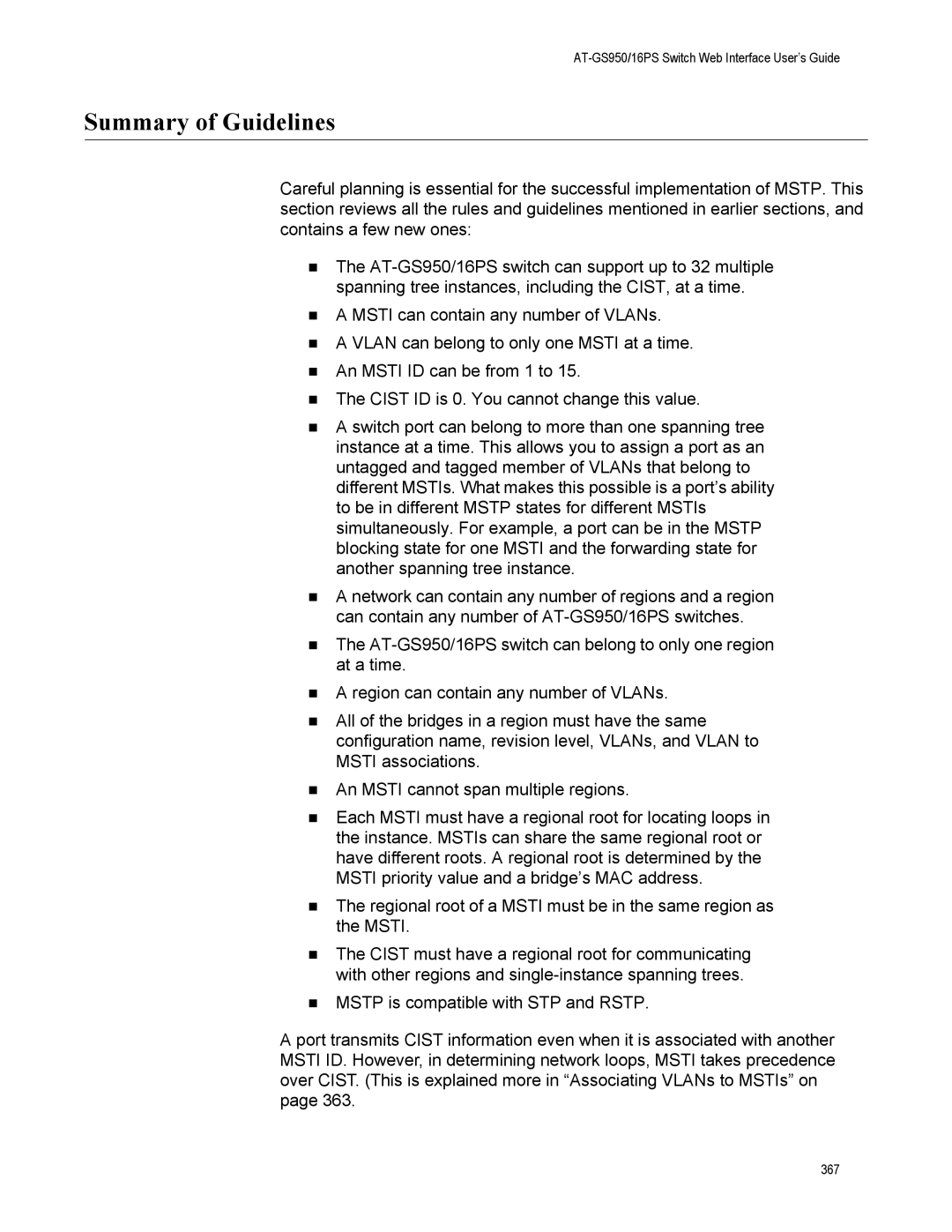AT-GS950/16PS Switch Web Interface User’s Guide
Summary of Guidelines
Careful planning is essential for the successful implementation of MSTP. This section reviews all the rules and guidelines mentioned in earlier sections, and contains a few new ones:
The
A MSTI can contain any number of VLANs.
A VLAN can belong to only one MSTI at a time.
An MSTI ID can be from 1 to 15.
The CIST ID is 0. You cannot change this value.
A switch port can belong to more than one spanning tree instance at a time. This allows you to assign a port as an untagged and tagged member of VLANs that belong to different MSTIs. What makes this possible is a port’s ability to be in different MSTP states for different MSTIs simultaneously. For example, a port can be in the MSTP blocking state for one MSTI and the forwarding state for another spanning tree instance.
A network can contain any number of regions and a region can contain any number of
The
A region can contain any number of VLANs.
All of the bridges in a region must have the same configuration name, revision level, VLANs, and VLAN to MSTI associations.
An MSTI cannot span multiple regions.
Each MSTI must have a regional root for locating loops in the instance. MSTIs can share the same regional root or have different roots. A regional root is determined by the MSTI priority value and a bridge’s MAC address.
The regional root of a MSTI must be in the same region as the MSTI.
The CIST must have a regional root for communicating with other regions and
MSTP is compatible with STP and RSTP.
A port transmits CIST information even when it is associated with another MSTI ID. However, in determining network loops, MSTI takes precedence over CIST. (This is explained more in “Associating VLANs to MSTIs” on page 363.
367
